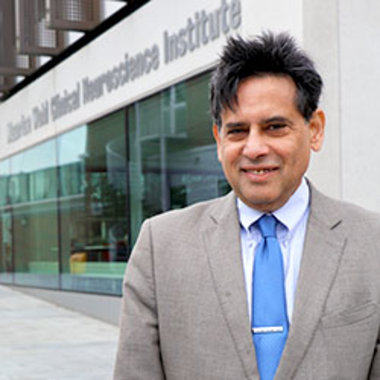17 January 2019
A professor at King’s College Hospital NHS Foundation Trust and King’s College London is helping to develop an app to help people with Parkinson’s manage their condition better.
Professor K Ray Chaudhuri [pictured] is working with two technology firms to develop two new mobile apps that would allow users to have a check-up in their own homes.
Parkinson’s disease is a movement disorder and patients typically suffer from involuntary shaking, slow movement and stiff and inflexible muscles. They may also develop a range of non-movement problems such as mood disorders, and language and memory difficulties. In the UK there are around 130,000-140,000 people living with Parkinson’s, and the numbers are set to double by 2030, making it the most expensive neurodegenerative disorder in the world.
With the help of a smartphone camera and an app, artificial intelligence technology analyses footage of patients performing tasks such as walking and writing to determine changes in their  motion function. In addition, the mobile app allows patients to record and share their symptoms such as their mood, how much pain they are experiencing and sleep patterns. This data is then relayed to a consultant who can use the information to assess whether a patient’s treatment or medication should be adjusted.
motion function. In addition, the mobile app allows patients to record and share their symptoms such as their mood, how much pain they are experiencing and sleep patterns. This data is then relayed to a consultant who can use the information to assess whether a patient’s treatment or medication should be adjusted.
Patients with Parkinson’s typically attend hospital four times a year for an assessment but Professor Chaudhuri believes the use of this new technology would mean patients would only need to attend a face-to-face consultation once a year.
Professor Chaudhuri said:
Many of our patients come from far away to attend consultations and some need to stay overnight as they aren’t able to travel there and back in one day. This technology would allow many of our patients to have a consultation in the comfort of their own home. For patients with Parkinson’s, who can find travelling difficult, this would be a great benefit.
King’s Health Partners Neurosciences has an ambitious vision to use our collective clinical, research, and educational expertise to deliver world-class patient care and research.
Read more on the King’s College Hospital website.





